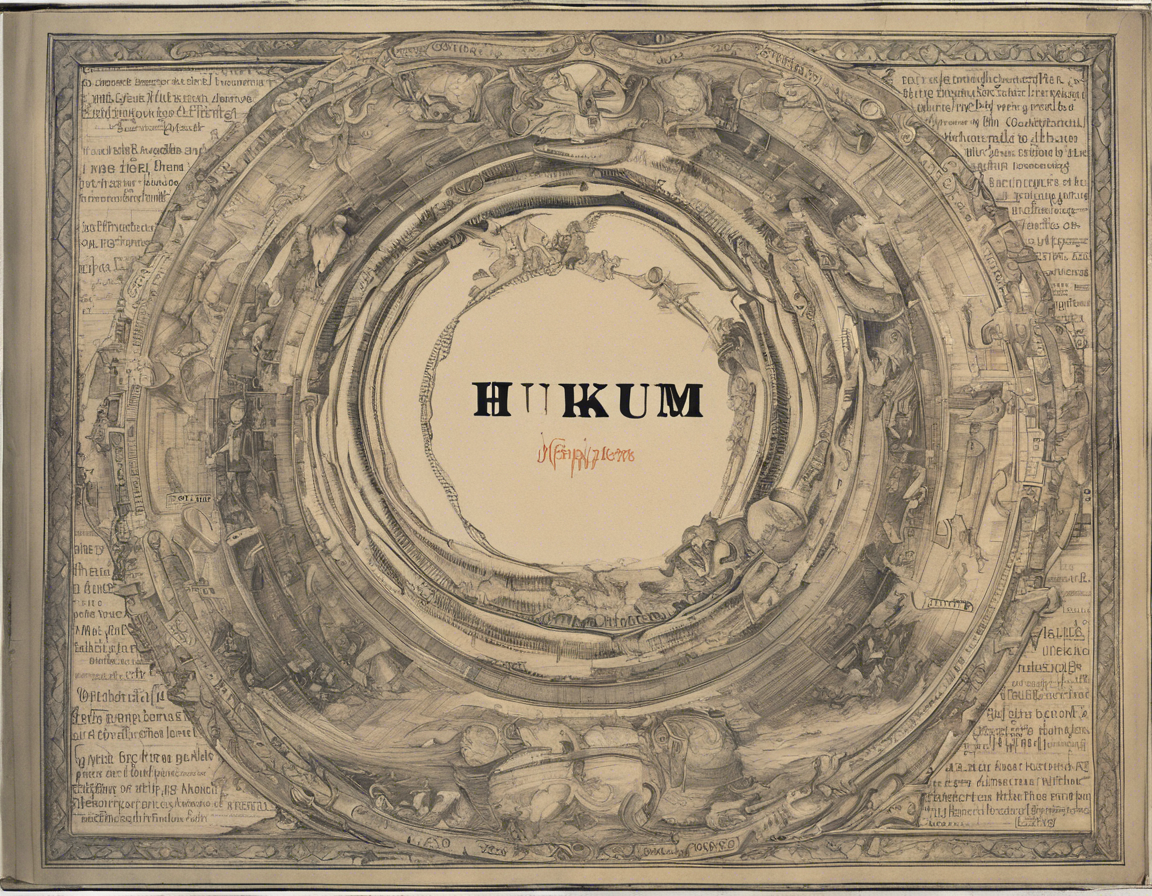Unveiling the Meaning of Hukum
Introduction
In the realm of Islamic jurisprudence, the term hukum holds significant importance. Derived from the Arabic language, hukum can be translated to mean “ruling,” “judgment,” or “legal verdict.” It pertains to the guidelines and regulations that govern various aspects of an individual’s life, including religious practices, ethical conduct, and societal interactions. Understanding the nuanced meanings and classifications of hukum is crucial for adherents of Islam seeking to navigate their daily lives in accordance with Islamic teachings. This article will delve into the multifaceted concept of hukum and its implications within the Islamic legal framework.
Categories of Hukum
In Islamic jurisprudence, hukum is typically categorized into several main classifications, each delineating different degrees of obligation, permissibility, or prohibition. These categories provide a framework for Muslims to discern the religious and legal implications of various actions and behaviors. The primary classifications of hukum include:
1. Hukum Wajib (Obligatory): Actions or behaviors that are considered mandatory in Islam fall under the category of hukum wajib. This includes the five pillars of Islam, such as the declaration of faith, prayer, fasting, charity, and pilgrimage for those who are able. Failure to fulfill hukum wajib may entail sinfulness and require repentance.
2. Hukum Mandub (Recommended): Actions that are encouraged and meritorious in Islam are classified as hukum mandub. While not obligatory, these deeds are highly recommended and hold spiritual benefits for the individual. Examples include voluntary prayers, charitable acts, and fasting outside of Ramadan.
3. Hukum Mubah (Permissible): Hukum mubah pertains to actions that are considered permissible in Islam, neither encouraged nor discouraged. These are neutral actions that do not carry moral implications, such as eating certain foods or wearing specific attire that does not contradict Islamic principles.
4. Hukum Makruh (Disliked): Actions that are discouraged but not sinful in Islam are categorized as hukum makruh. While engaging in hukum makruh does not incur punishment, avoiding such actions is recommended to attain spiritual purification.
5. Hukum Haram (Prohibited): The most severe classification of hukum is hukum haram, denoting actions that are strictly forbidden in Islam. Engaging in hukum haram activities incurs sinfulness and requires repentance and atonement. Examples include consuming alcohol, engaging in usury, and violating the rights of others.
Sources of Hukum
The delineation of hukum in Islamic jurisprudence stems from primary sources, namely the Quran and the Sunnah (the teachings and practices of the Prophet Muhammad). These foundational texts serve as the bedrock of Islamic law, guiding Muslims on matters of faith, morality, and ethical conduct. Scholars derive hukum from the Quran through direct injunctions (ayat al-ahkam) that prescribe specific rulings or principles. Additionally, the Sunnah elucidates hukum through the Prophet’s actions, statements, and approvals, known as hadiths.
Ijtihad and Hukum
The process of ijtihad plays a pivotal role in interpreting and applying hukum to contemporary issues and contexts. Ijtihad refers to independent reasoning and legal deduction employed by qualified scholars (mujtahids) to derive legal rulings from Islamic sources. Through ijtihad, scholars are tasked with extrapolating hukum on new and complex issues that may not have direct precedents in classical texts. This dynamic process ensures the relevance and adaptability of Islamic law to changing societal dynamics.
Application of Hukum
In daily practice, understanding hukum enables individuals to navigate their personal and communal responsibilities in accordance with Islamic principles. Observing hukum wajib ensures the fulfillment of core religious obligations, fostering a strong spiritual connection with the divine. Embracing hukum mandub cultivates virtues and enhances one’s spiritual growth, while avoiding hukum makruh safeguards against spiritual pitfalls and moral shortcomings. Adhering to hukum haram safeguards against sinfulness and promotes ethical integrity within the community.
Frequently Asked Questions (FAQs)
1. What is the significance of understanding hukum in Islam?
Understanding hukum in Islam is essential for adherents to navigate their religious obligations and prohibitions in accordance with divine guidance. It shapes individuals’ moral compass and governs their ethical conduct in various spheres of life.
2. How do scholars derive hukum from the Quran and Sunnah?
Scholars derive hukum from the Quran through explicit injunctions and principles, while the Sunnah elucidates hukum through the Prophet’s teachings and practices recorded in hadiths. This foundational methodology ensures the authenticity and applicability of hukum.
3. Can hukum evolve over time?
Yes, hukum can evolve over time through the process of ijtihad, where scholars employ independent reasoning to derive legal rulings on contemporary issues. This adaptive flexibility ensures the relevance and dynamism of Islamic law.
4. How does hukum guide personal and communal conduct?
Hukum guides personal and communal conduct by delineating obligations, recommendations, permissions, prohibitions, and disliked actions. Adherence to hukum fosters spiritual growth, ethical integrity, and social cohesion within the Muslim community.
5. What are the repercussions of violating hukum haram in Islam?
Engaging in hukum haram incurs sinfulness and requires repentance and atonement in Islam. Violating hukum haram jeopardizes one’s spiritual well-being and may lead to moral transgressions with societal implications.
In conclusion, hukum serves as the cornerstone of Islamic jurisprudence, delineating the moral, ethical, and legal framework that governs Muslim conduct. By comprehending the categories, sources, and applications of hukum, individuals can navigate their religious duties conscientiously and uphold the principles of faith and righteousness in their lives.

